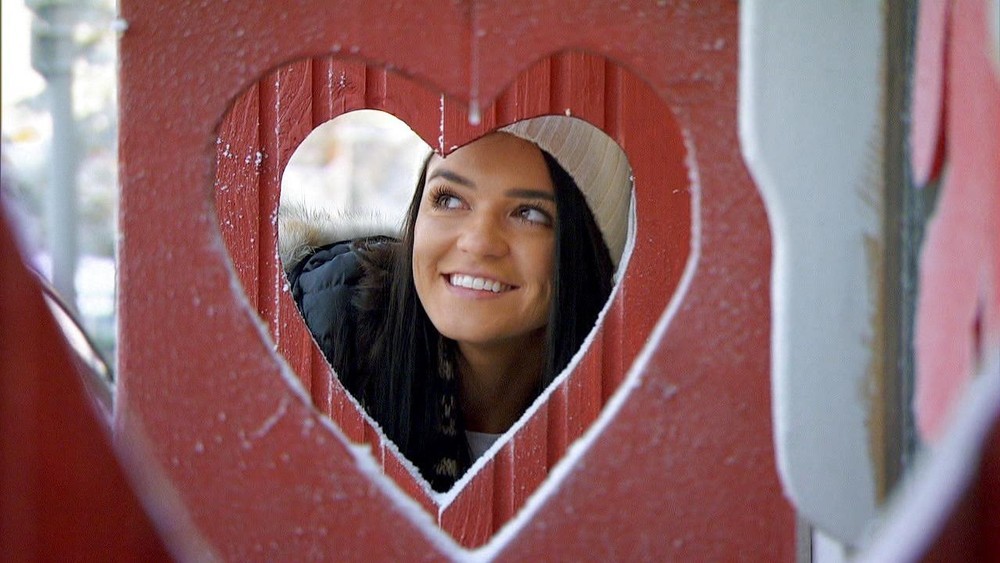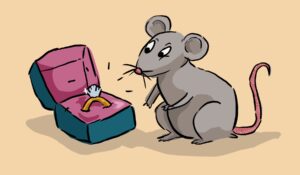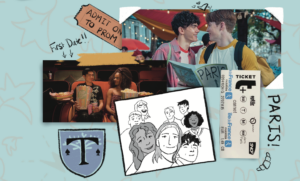Love is Blind is perhaps the most perplexing T.V. show I have ever seen.
First of all, the phrase itself has been grossly misinterpreted (pretty sure blind love is about how much someone you love can do wrong without you noticing and not that you are in fact capable of falling in love with someone without seeing them. Also, if you needed to prove that, the thousands of blind people who have fallen in love are pretty good evidence).
But also, after having watched the whole season, I remain incredibly confused about what the show is trying to prove. As the hosts so cloyingly put it, the participants “fell in love with someone, and agreed to marry them, sight unseen.” Which is an interesting way to date someone for sure, but the lack of sight was not the problem most of the (conventionally attractive) participants encountered.
It turns out it’s really hard to date someone in a fabricated setting, and then introduce them to your actual life. Especially if you’ve known each other for, I don’t know, six weeks.
Shows like Love is Blind and those in The Bachelor franchise are frustratingly compelling, not because they create genuine connections, but because they inevitably make the watchers feel secure and superior in their own relationships. The shows set up their contestants to fail, and we all gleefully watch as they do just that.
The Bachelor is not a show about love anymore. It just isn’t. It’s debatable whether it ever was, but people used to get engaged, at least. And then America stopped paying attention. Of the 38 seasons of the Bachelor and Bachelorette, only ten couples are still together—and two of those got engaged when the Bachelor left the structure of the show to go after his second choice.
Now, The Bachelor franchise finds itself in a funny place. Their shows this year have been absolutely groundbreaking—from Jed Wyatt’s betrayal of Hannah Brown on the Bachelorette to the engagement (and later, break-up) of the first same-sex couple in the U.S. Bachelor franchise on Bachelor in Paradise. Chris Harrison’s favorite words have become “the most shocking season yet,” but honestly it seems like they have reached a limit—which should be concerning to those of us sitting at home binging episodes. They will try to step up the game, and the growing pains will be felt by the contestants.
These shows have a financial incentive to push drama and heartbreak into their episodes. If there was a clear trajectory to a happy couple, we might stop watching. So, they don’t let people form relationships in healthy ways, like meeting each other’s friends or choosing to spend time together just hanging out. Allotted date times means contestants can’t make an effort to see each other more, and the dates are so spectacular they don’t force conversation. The shows squeeze major milestones into just a few months—Love is Blind contestants have just six weeks from the day they first meet and when they get married. Worst of all, they equate winning to love, disincentivizing walking away from the show because of a lack of connection or an unhealthy relationship.
The Bachelor almost prides itself on how the experience puts its participants through the wringer. Clips of contestants crying (often asking not to be filmed) are peppered with revelations that this process is not all that it is promised. Contestants are caught saying they never imagined the show being so draining and emotionally destructive. Isolated, they can only lean on producers or Chris Harrison for comfort while going through what is supposed to be seen as a legitimate heartbreak.
If that’s the show we are left with, one where contestants try and miserably fail to find love, and do it while generally making fools of both themselves and the process of dating, why are we paying attention? And why do we keep replicating it in even more distorted spin-offs, like Love is Blind?
We want to feel better about our own lives, sure, but we also want to see this season’s crazy interaction and know who the most hated contestant is. We want to witness every time Jessica inexplicably picks a fight with Mark, and how often it backfires (always). We are here for the drama. And if we’re upfront about that, maybe it’s okay.
But stop pretending. You’re not turning on Love is Blind for the inspiring love story.





